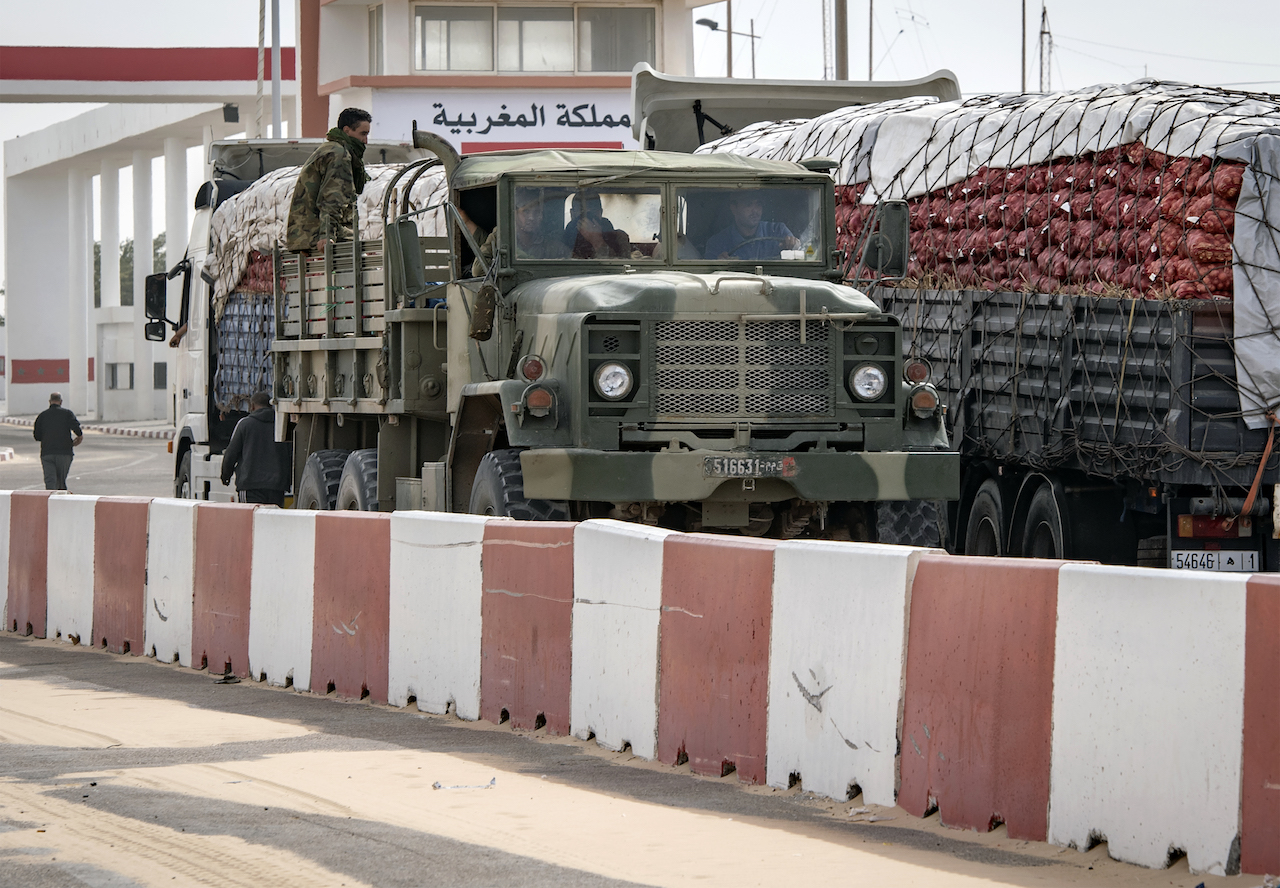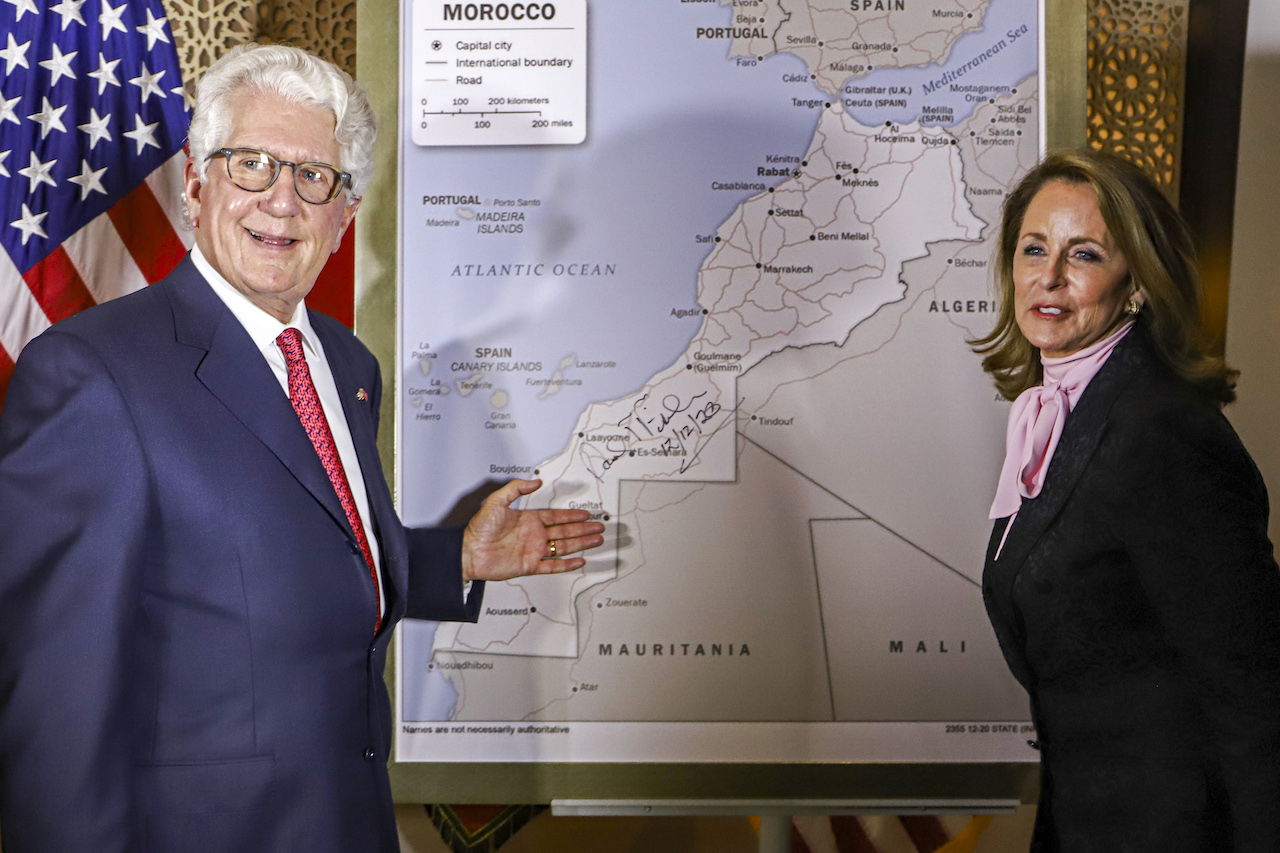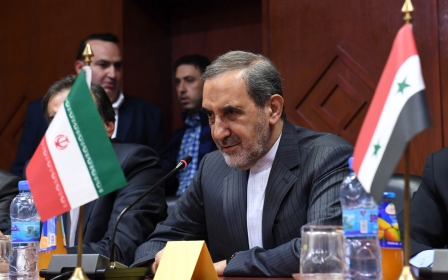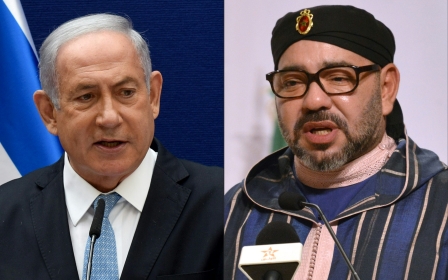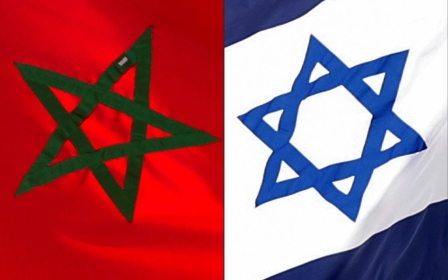Israel-Morocco deal: Palestinians and Sahrawis hope for renewed solidarity
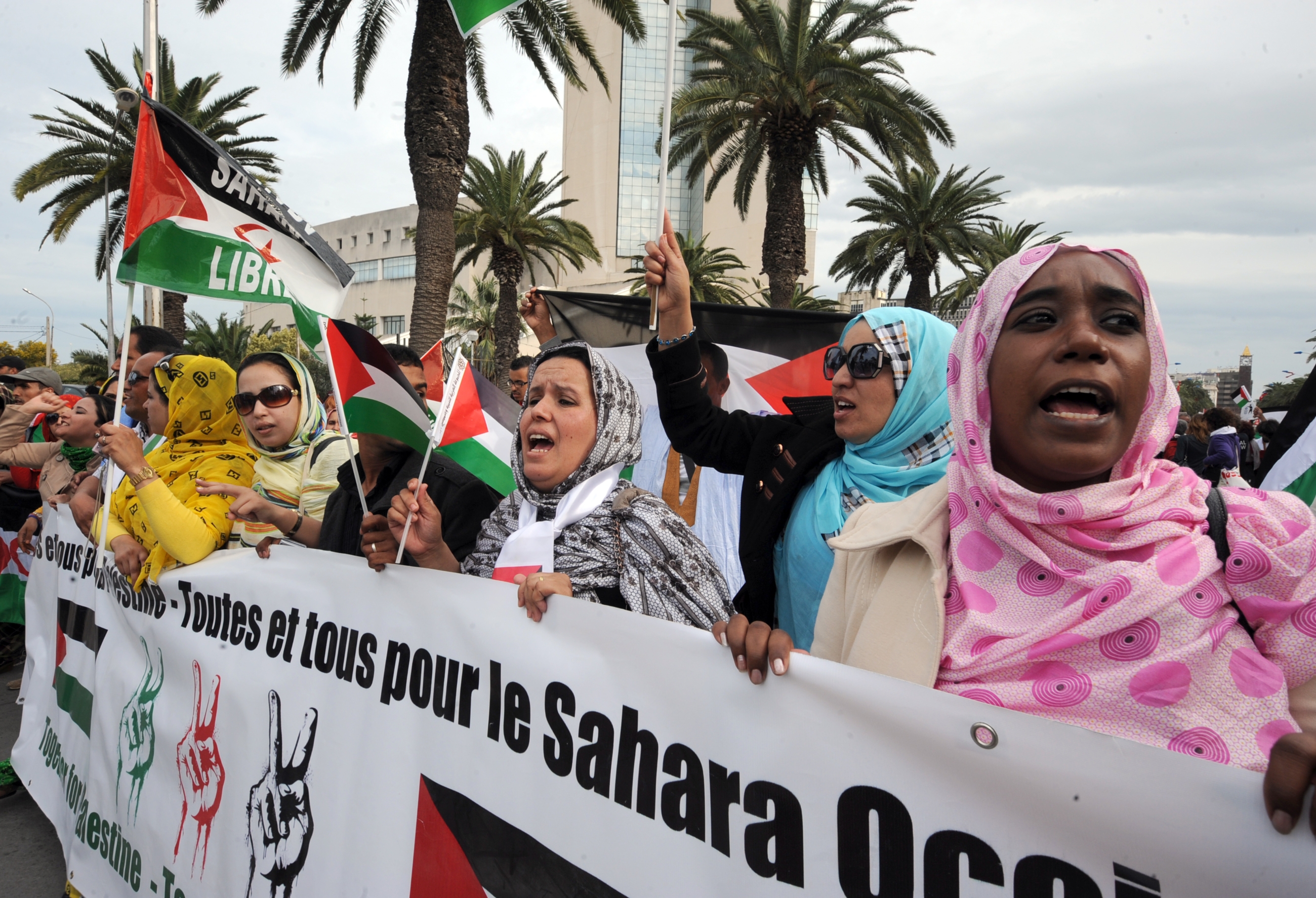
Palestinian and Sahrawi activists have expressed their hope for greater cooperation and solidarity in the wake of the Israel-Morocco normalisation deal, which saw the US recognise Rabat's sovereignty over the disputed Western Sahara.
Morocco's move this week to establish diplomatic ties with Israel has been greeted with outrage by Palestinians, coming on the heels of similar recognition deals involving the United Arab Emirates, Bahrain and Sudan.
It has also highlighted the joint struggle for sovereignty and recognition faced by both the Palestinians and Sahrawis against the powerful militaries of Israel and Morocco.
Though links have been made for decades between the two struggles - Rabat claimed Western Sahara in 1957 - those ties have largely been neglected by much of the Palestinian leadership in recent years as it remained close to the Moroccan government.
'Trump's announcement will strengthen the bonds of solidarity between the Sahrawis and the Palestinians who were deceived by the fake Moroccan support for the Palestinian cause'
- Nazha el-Khalidi, Sahrawi activist
Mohamed Ahmed Madi is head of the Palestinian Committee for Solidarity with the Sahrawi People, a group supporting solidarity with Western Sahara and close to the left-wing Popular Front for the Liberation of Palestine (PFLP).
New MEE newsletter: Jerusalem Dispatch
Sign up to get the latest insights and analysis on Israel-Palestine, alongside Turkey Unpacked and other MEE newsletters
In the past, his organisation has faced hurdles from Fatah and Hamas, which rule the occupied West Bank and besieged Gaza Strip respectively, in trying to promote cooperation with the Sahrawis.
Currently living in Gaza, Madi told Middle East Eye that he hoped that Morocco's overt alliance with Israel would make the Palestinian leadership be more sympathetic to the Sahrawi cause.
"The position is that the committee welcomes all positive stances, and we see that Morocco's step in normalisation is an opportunity for the factions to review their positions," he said.
"But at the same time we give real consideration to every fixed position and not to fluctuating positions that move according to circumstances."
Palestinian and Sahrawi solidarity activism has a long history.
The PFLP was always a vocal supporter of the Polisario Front, the organisation that controls much of Western Sahara and has been engaged in a decades-long political (and sometimes armed) struggle against Morocco for Sahrawi independence.
PFLP's founder and former leader George Habash first visited the leadership of the Polisario Front in Algeria in the 1970s and declared both his support for their cause and for the overthrow of Morocco's "reactionary" monarchy.
Other Palestinian factions, however, have taken different stances. Hamas, in particular, has long had close ties with the Moroccan Justice and Development Party (JDP), which has headed the executive branch of the Moroccan government since 2011.
This led, in 2016, to the banning of the activities of the Palestinian Committee for Solidarity with the Sahrawi People in Gaza.
At the time, Madi accused the JDP of pressuring Hamas into shutting down his work and said he only found out about the ban after it was reported in Moroccan media.
Today, with the Israel-Morocco deal overriding the rights of both Palestinians and Sahrawis, he said there needed to be more attention paid than ever.
"We are striving to mobilise the largest possible numbers in solidarity with the justice of the Sahrawi cause, and we in the Palestinian Committee for Solidarity with the Sahrawi People seek to sensitise and introduce the Sahrawi issue at the level of the Arab region and all over the world to achieve our goals," he said.
"Especially breaking the media blackout, which has been systematically applied by the Moroccan occupation for more than 45 years."
Two occupations
Both the Sahrawis and Palestinians have found themselves the victims of post-colonial settlements
The 1917 Balfour Declaration issued by the British promised the creation of a Jewish homeland in Palestine, without consulting the wishes of the native population.
Similarly, the Madrid Accords signed in 1975 saw the carving up of Western Sahara, previously known as Spanish Sahara, between Morocco and Mauritania - this time without the consent of the native Sahrawis.
Before, the first thing they would respond when you referenced Sahrawi rights, they would say 'but Morocco stands with Palestine'
- Ibti Allaloul, NGO worker
The Polisario Front was officially launched in 1973 with the aim of gaining independence for the region. It fought a guerilla war with Morocco and Mauritania (backed by Algeria) until a ceasefire was agreed in 1991.
Despite the close links between the Polisario Front and Palestinian leftist groups, however, Morocco's previous public support for the Palestinian cause led many in the official leadership of the Palestine Liberation Organisation (PLO) to overlook the situation in Western Sahara.
During a speech in 1980, Habash denounced the PLO's hypocrisy for failing, at the time, to support a resolution at an international conference supporting the "the revolution of the Saharan people and recognition of the Saharan Republic".
Ibtihaml Alaloul, a Palestinian NGO worker and activist based in Sweden, said it was disappointing that the Palestinian leadership had stood with Morocco over the question of Western Sahara for so long.
"If not Palestinians, then who are the main nation who should understand this situation?" she told MEE.
Alaloul has long campaigned on the issue of Western Sahara, travelling many times to visit the Sahrawi refugee camps in Algeria, where the lives of the at least 40,000 inhabitants closely mirror those of the Palestinians living in camps across the Middle East.
In the past she had been heavily involved in training Sahrawi media workers, and says she was subjected to surveillance by Morocco when she last visited the kingdom in early 2020.
Although she has not yet raised the issue in the occupied Palestinian territories or Israel, Alaloul has brought together Palestinian and Sahrawi groups in Sweden to discuss the commonality of their struggle, and has hosted seminars and film screenings about Western Sahara in Palestinian refugee camps in Lebanon.
Alaloul said that many Palestinians, especially those associated with left-wing groups, understand the situation and struggle in Western Sahara, but too many others believe the stance of the Palestinian Authority, the semi-devolved government in the occupied territories, towards Morocco is "accurate and legal".
"It's really unfortunate they have this kind of relation with regards to Morocco," she said, adding that it was important Palestinians realise "we cannot be liberated without standing with other causes".
'No legal value'
Even as recently as July, Morocco issued a condemnation of Israel's threats to unilaterally annex parts of the West Bank, saying it would amount to a "flagrant violation to resolutions of legality and international law".
A few months later, Morocco itself sent forces into the Guerguerat buffer zone in Western Sahara, a region patrolled by a United Nations peacekeeping force, violating the terms of the 1991 ceasefire agreement.
In response, the Polisario Front declared the end of the 30-year truce. Less than a month later, Morocco had signed a normalisation deal with Israel, which came with the US promise of recognising Moroccan sovereignty over Western Sahara.
The move was "nothing more than a Twitter announcement that has no legal value," according to Nazha el-Khalidi, a Sahrawi women's rights activist who has been arrested on numerous occasions by the Moroccan state over her campaigning for the rights of Sahrawis.
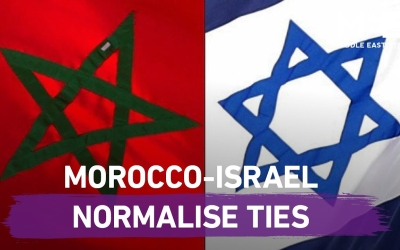
She described Morocco as a "traditional ally" of Israel, referring to a long history of covert cooperation, and said Israeli Prime Minister Benjamin Netanyahu was trying to deflect attention from his corruption charges by making deals with "rickety dictatorial regimes such as the Gulf regimes and the Moroccan regime".
"Trump's announcement will strengthen the bonds of solidarity between the Sahrawis and the Palestinians, who were deceived by the fake Moroccan support for the Palestinian cause," she told MEE.
"Likewise, this decision gave great impetus to our cause and will alert more people to the occupation [in Western Sahara]. This will positively reflect on international solidarity with our legitimate rights."
Despite the grim developments, Allaloul said that at least the new events might dispel any lingering illusions Palestinians had about Morocco.
"Before, the first thing they would respond when you referenced Sahrawi rights, they would say 'but Morocco stands with Palestine'," said Allaloul.
"But with this new development - although it seems negative - that might lead them to thinking that they're going in the wrong direction, now that Morocco explicitly supports an occupier."
This article is available in French on Middle East Eye French edition.
Middle East Eye delivers independent and unrivalled coverage and analysis of the Middle East, North Africa and beyond. To learn more about republishing this content and the associated fees, please fill out this form. More about MEE can be found here.


